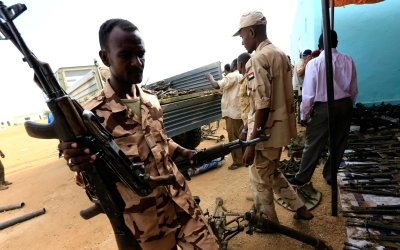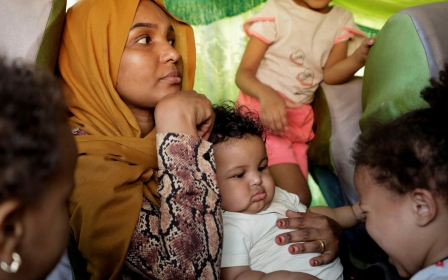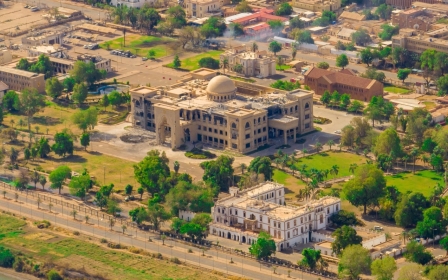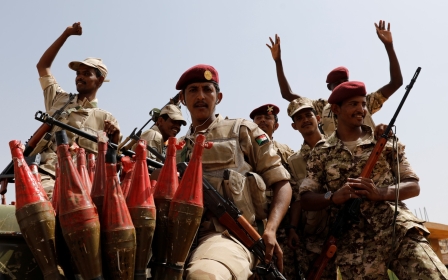Protests in Port Sudan target UN envoy and back the military
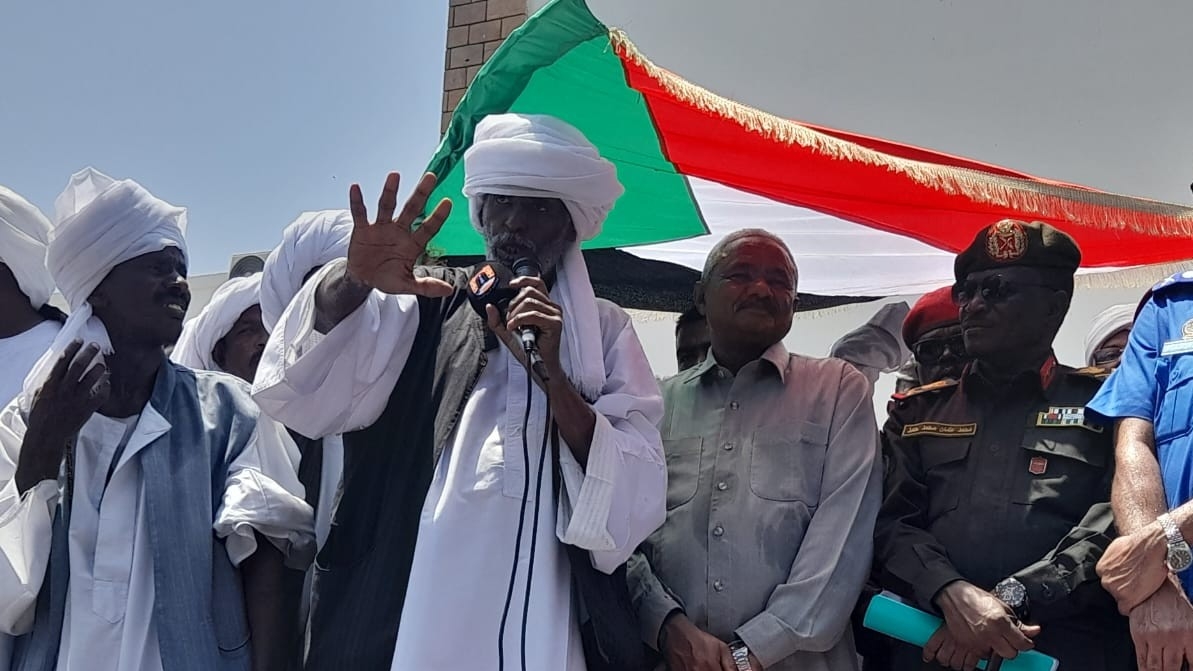
Hundreds of people in Port Sudan protested on Wednesday in support of the Sudanese military’s battle against the Rapid Support Forces paramilitary, and called for the expulsion of the UN special envoy to Sudan, Volker Perthes.
The demonstration was not welcomed, however, by pro-civilian rule activists and political leaders, who regard the protesters as lending support and legitimacy to a military that has committed abuses, including the 2021 coup.
Residents of the city, meanwhile, urged all sides to calm the situation in Port Sudan, which has become an important haven for hundreds of thousands of people in the war-torn country, not to mention a commercial lifeline.
Led by the same people who have previously shut down Sudan’s chief port to place political pressure on opponents, there are fears that the rally could escalate at a time when stability and prosperity in Port Sudan are needed more than ever.
Sudanese of Beja ethnicity gathered in front of the offices of the Red Sea state local authority, which is also just a few metres from the Coral Hotel where Perthes is staying.
New MEE newsletter: Jerusalem Dispatch
Sign up to get the latest insights and analysis on Israel-Palestine, alongside Turkey Unpacked and other MEE newsletters
The Beja, many of whom follow the prominent traditional leader, Mohamed al-Amin Tirik, described Perthes as representative of “new colonialism” and an enemy to the Sudanese people.
They demanded that he leave the country within 72 hours, accusing him of malignly intervening in domestic issues and politics.
Perthes was a key player in negotiations for the framework agreement to bring a transitional political system in place following the October 2021 military coup, which was led by the military and RSF and removed Sudan’s civilian government.
Beja leaders contributed to the instability ahead of the coup by shutting down the port, where 90 percent of Sudan’s foreign trade passes through.
The framework agreement negotiated this year to resume a civilian and democratic path for Sudanese rule was then rejected by Beja leaders, who felt their community’s concerns were not met. Meanwhile, the agreement’s plans to fold the RSF into the army broke into violence on 15 April, which a month later has claimed over 800 lives.
The Beja crowd chanted for Tirik, as well as shouting "Volker get out" and "Sudan is a free country".
Tirik addressed the crowd from the Red Sea state municipality building, saying no one will leave unless the special envoy is expelled soon.
“We can rule our country without these interventions. This is our priority and political path, then we can sit as an army, national political parties and communities to solve our problems and see how we can support the transitional path and the civilian democratic ruling,” Tirik told the rally.
“We have submitted a memo to the head of the army including our demands and we will see. If they adopt it that’s OK, but if not we will be back here to stay,” he added, claiming the UN envoy’s continuing presence would only bring instability to eastern Sudan.
Calls for calm
Activists from the Resistance Committees pro-democracy network and leading members of the Forces for Freedom and Change political alliance (FFC) from the Red Sea state denounced the Beja rally as “propaganda”, and suggested they had ties to the government under former autocrat, Omar al-Bashir.
“This is a part of the army’s propaganda that we know very well. These groups were part of the old regime and they are basically supporting the army and they previously closed the port and made a lot of economic troubles and paved the way for the military to make the coup and hinder the transition,” one activist told MEE, speaking on condition of anonymity for security reasons.
“Instead of playing these politics and adopting the agenda of the old regime, it’s better for those leaders to at least stand against the violations that are being committed by the two warring parties,” another said.
'We want peace and we want Port Sudan to continue helping those who fled the war'
- Isam Hassan, resident
For Port Sudan’s civilian residents, the priority is keeping the country’s conflict and divisive politics out of the city.
With Sudan’s already threadbare infrastructure shredded by the war, Port Sudan has become a lifeline for everything from aid to commerce to evacuations.
Most Sudanese ministries and international organisations are currently operating out of the city after Khartoum was engulfed in fighting.
“We are not with the RSF or SAF [Sudanese armed forces]. We want peace and we want Port Sudan to continue helping those who fled the war from different parts of the country, including Khartoum,” Isam Hassan, a 34-year-old resident, told MEE in Port Sudan’s market.
“We don’t like this polarisation reaching here. We thank god that the activities of the RSF and the war in the Red Sea state stopped after one or two days of the war,” Fatima Gad al-Moula, another resident, added.
Middle East Eye delivers independent and unrivalled coverage and analysis of the Middle East, North Africa and beyond. To learn more about republishing this content and the associated fees, please fill out this form. More about MEE can be found here.


